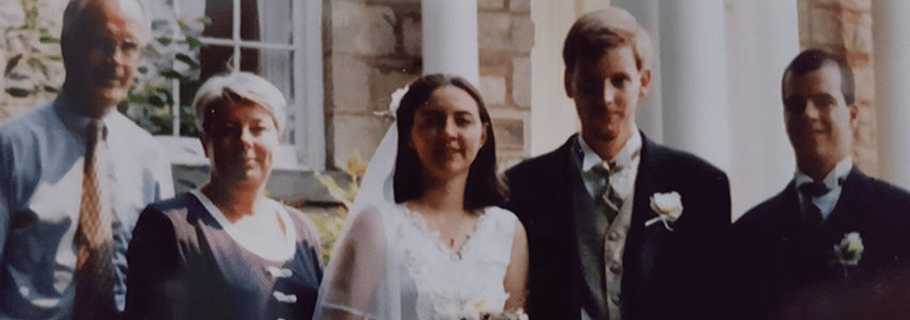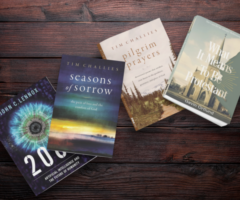Friday morning was the funeral for evangelist Billy Graham, one of the most famous men in the world. Two thousand people attended the invitation-only event. On the guest list were presidents, cardinals, celebrities, and megachurch pastors—an A-list of significant and accomplished people.
Friday morning was the memorial service for Irene Morrison. A couple hundred people attended the event which was held in a little country church a hundred miles from nowhere, and open to anyone who knew and loved her. In the pews were children, farmers, nannies, retirees, and even a blogger—a B-list of normal and unknown people.
Billy Graham played no role in my life, but Irene Morrison was a towering figure. Her son, Paul, was my childhood best friend and from six or seven years of age, Irene affectionately referred to me as her “third son.” I was already the son of a devoted and godly mother, but loved Paul and spent so many hours in his home that it almost was like I merged into his family. I even spent a whole summer with them when my family moved overseas and I just couldn’t handle the culture shock. At many points in life Irene was another trusted, mature, Christian voice who spoke with wisdom, who modeled godliness, and who displayed a great love for Jesus.
Her memorial service, following her sudden and unexpected death, was an occasion of both grief and joy. It was the very best balance of mourning a deep loss while recounting abundant evidences of God’s grace in a life. Her two sons, her husband, and her pastor all paid tribute to her. Afterward, many conversations recounted her influence. And through it all, three themes surfaced again and again.
Her love for people, best displayed in a home whose door was wide open. The nights and weeks I spent there as a child were not an exception but a rule and many others were welcomed in before and after me. Irene’s pastor told how she, of all people in the church, was most gifted at welcoming newcomers. But it was not enough to shake a hand and extend a greeting—she would also invite them to her home for a meal. She loved people not only because socializing came easy to her as an extrovert, but because she knew those people were made in God’s image and loved by him. He wondered aloud who in their church would now take up that crucial role.
Her love for Jesus, best displayed in her evangelism. She had been saved in a little Gospel Hall in the U.K. where she had quickly been taught to share the gospel. And she did. She shared it with hundreds of people, most of whom she encountered through their local church or neighborhood. When they lived next to a retirement community she began a Bible study for seniors (whom she always referred to as “my seniors”), and saw many of them come to Christ. When they lived near a wealthy community that employed Filipino nannies, she befriended the people so many others overlooked and saw many of them come to Christ. And so many others.
Her love for the Bible, best displayed in a simple question the pastor asked (and which I considered perhaps the highlight of the morning): “How many people here studied the Bible with Irene?” I couldn’t see the whole room at a glance, but there must have been 50 or 60 hands raised in the air, including my own. I don’t know that there was any time in her adult life when she wasn’t involved in multiple Bible studies. Because she loved God she loved God’s Word and had great confidence in its power. There are three Bibles from my childhood I remember with great clarity, and they were owned by the three most significant women from those years: My mother, my aunt Liz, and Irene. All three had Bibles that were beat up and broken and taped back together because they had been read and studied again and again and again. All three of these women shaped me by the Word because they were women of the Word.
Friday was a day that marked two funerals—Billy Graham and Irene Morrison. We gain little benefit from comparing one Christian with another, for God has crafted and gifted us so differently. To some he has given much and to some he has given little. What matters before God is not how much we have been given, but what we do with it. Irene was never given a national platform or a stage from which to preach to millions. She lived in relative obscurity, just like the vast majority of us. She committed her life to her husband and two boys, then to the boys and girls and men and women whom the Lord led into her life. And in what God gave her and what God called her to she was utterly faithful. What a joy it was to hear her husband and sons and daughters-in-law and so many others say, in essence, “Many women have done excellently, but you surpass them all.”










